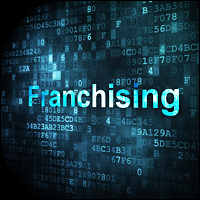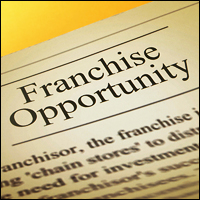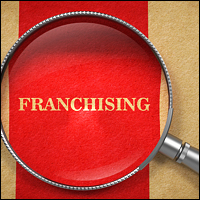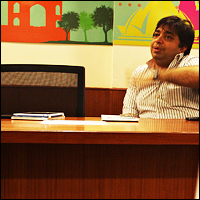
Family Businesses Now Take A Way Forward Through Franchising.
The phrase “family business” is not hard to understand. By definition, any corporation that is run by members of a family, immediate and/or extended is eligible to be called a “family business”. But today, more and more businesses today are making their operations less dependent on the owner entrepreneur. But everything, like in a monopoly situation, depends on the owner and the dynamic of the family and the member-partners. Some of the top family run businesses in India are Reliance Industries, Tata Consultancy Services, Bharati Airtel, Wipro Technologies, Jindal Group, Wadia Group, etc. But aside from these giant conglomerates, the mom-and-pop stores form the basis of a country where family culture and business go hand in hand.

Franchise India to make way for Fresh Graduates.
The proverbial story of graduates in India is all too familiar. The average age at which students graduate in India is 21, and soon after, in fact when in final year/semester in college, are expected to answer a plethora of dated questions by family and peers alike: “So now that the studies are over, which company are you applying to?”, “Your dream job?”, “How soon are you starting with your job?”, “Is it a reputed, well-known company?”, “How much are they paying?” So on and so forth. The trails of questions seem never-ending and repetitive. Succumbing to join a big corporate or giving in to the temptation of shepherding across their father’s business to the altar, the options to choose from after one has “completed” their education are far from many. However, many examples shed light on the third category, too, that of graduates who go for starting their own business and becoming entrepreneurs.

Franchising Fit for Retired Professionals.
Retirement is never an ending but a new beginning. It is the best time to put all the wealth and wisdom that you have acquired during your professional journey to the best possible use. Franchise route offers various opportunities for retired professionals to invest in their money with limited risk and reap valuable returns.

How to Bounce Back from Failure.
What does the phrase “Bounce back” mean? I remember one of my friends reiterating the fact how he was a good bike rider, every time we came close to a “near miss” experience with other vehicles on the road. The incident happened recently and his explanation came as a response to my evident fear and subsequent request to “be on the safer side of the road”. He didn’t like hearing that, much as the Gen Y lot of entrepreneurs who take pride in having made peace with their failures. As I was still reeling off the near miss incident on the road, my biker friend explained to me his version of looking at incidents such as these: “You must compare this journey with the journey of life. We come into this world, learn the ropes, come face-to-face with hiccups and learn to bounce back to focus ‘on the road ahead’. Have the right attitude, learn from mistakes and move on.” I was dumbfounded at the analogy drawn and thanked my friend for the explanation that hit the bull’s eye, aside from giving me food for thought for my current article.

Take Charge! – Building an Entrepreneur Mindset.
Take Charge, a book by serial entrepreneur and author of bestselling book on franchising, The Science of Reproducing Success (FIHL Publications), is about the attitude that powered Vijay Kumar to tell Mr R K Gupta, “Meh paanch lakh ka sauda karne aaya hoon, aur meri jaid mein paanch phuti kaudiya bhi nahi hai.” (Trishul, 1978)


Problems Exist and They Have to be Tacked - II
In the last post we discussed the ever-important need to evolve ways in which the retail investor, the micro customer and the small entrepreneur feel more empowered to design useful, profitable and desirable initiatives.
